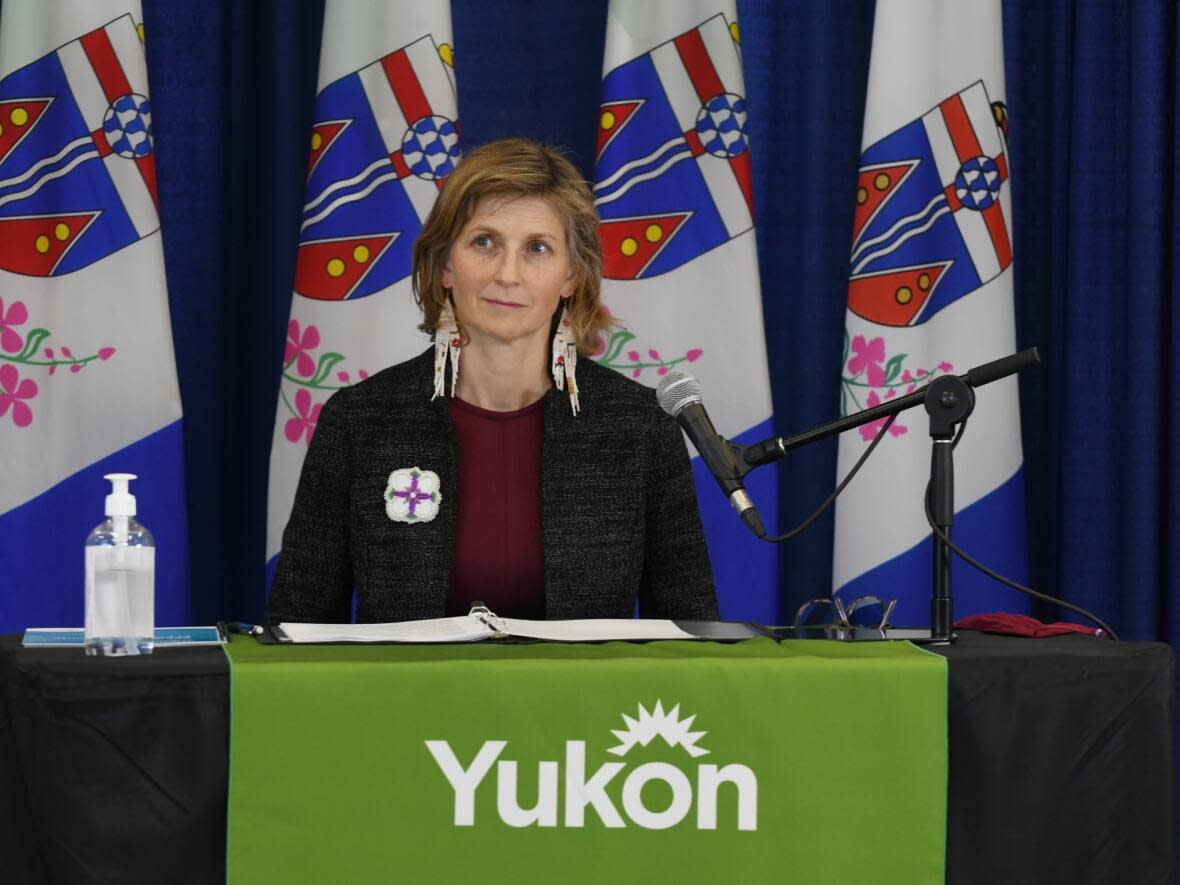Whitehorse hospital capacity partly affected by COVID-19 impact on staff, says Yukon top doc

The hospital in Whitehorse has limited to full capacity due in part to COVID-19 affecting staff there, says Dr. Catherine Elliott, the acting chief medical officer of health.
As of Thursday, the territory's COVID-19 website, which now includes a link to Yukon hospital bed availability, showed the capacity in Whitehorse coded red, meaning space is either extremely limited or the hospital is full. Elliott said at the moment there is only one patient admitted for COVID-19.
Capacity in the Whitehorse intensive care unit, along with Dawson City and Watson Lake, were all coded green, meaning space is available.
"At this point, the hospital status is not in red due to COVID-19 [patients]," Elliott said about Whitehorse.
Instead she said there are a number of reasons, including a possible influx of people who may have delayed going to hospital through the pandemic and are now seeking treatment of other conditions.
It's also that healthcare workers are being affected by COVID-19, Elliott said.
"The fact that healthcare workers are tired and many of them, of course, are contracting COVID-19 at this time or isolating due to having family members or … having somebody who they're caring for or themselves being exposed," Elliott said.
"This [red status] is not, as you can see, with one patient in the hospital. This is not a reflection of the hospital. This is actually a reflection of the spread of COVID-19 in our community and how it impacts our healthcare workforce."
Elliott made the comments during a Thursday morning COVID-19 update, alongside Dr. Katharine Smart, a Yukon pediatrician and president of the Canadian Medical Association.
Outbreaks at Whitehorse's continuing care facilities are also a factor, said a spokesperson from Whitehorse General Hospital in an email to CBC Wednesday.
"Fortunately, over the last couple of weeks, the number has remained very low. We have ranged from zero to two admissions due to COVID," the email reads in part.
However, it says bed availability is "very limited" at the hospital's inpatient units as there are a number of patients who no longer require hospital care and are waiting for a space in continuing care.
It says outbreaks at continuing care facilities — there are several active cases at both Whistle Bend Place and Copper Ridge Place in Whitehorse — has temporarily delayed some transitions from hospital to continuing care.
It added that "the hospital and its partners are actively working to address the situation."
Elliott said right now, there are nine residents in Whistle Bend Place who are infected and three people in Copper Ridge Place. She said they are being monitored closely, and getting any medical attention that's necessary.
Missed Thursday's news conference? Watch it here?
Children aged five to 11 can get their second doses of COVID-19 vaccine if it's been eight weeks since their first. Elliott said third doses of the COVID-19 vaccine are now recommended for children in that age group who are moderately to severely immunocompromised.
According to the government's website, about 57 per cent of Yukon children aged five to 11 had received their first dose of vaccine as of Wednesday.
Earlier this week, officials announced that staff and children of child care and early learning programs in Yukon would no longer need to report positive COVID-19 cases as of Wednesday.
It's a similar move to the direction Yukon schools took earlier this month, where parents, students and staff no longer need to inform schools if they tested positive for COVID-19. Instead, schools only need to know of an absence due to illness.
The Yukon Communicable Disease Control will now monitor for above average numbers of absences due to reported illness at schools and early learning and child care programs.
The Yukon government said Tuesday that it began rolling out 2,800 rapid tests to schools and licensed early learning and childcare programs in rural communities and that the distribution process is still ongoing. That's on top of the 10,875 rapid tests it had already planned to send to rural communities across the territory.
As of Thursday, Yukon had 209 known active cases, though the true number is likely higher as rapid test results are not included in this count, and health officials have told Yukoners to assume they have COVID-19 if they have symptoms and to skip PCR testing, with some exceptions.


